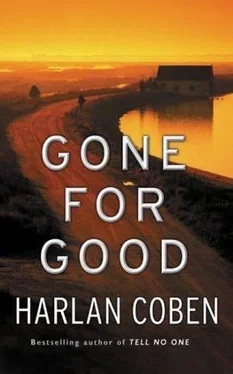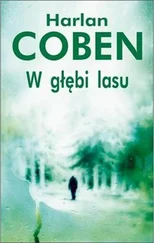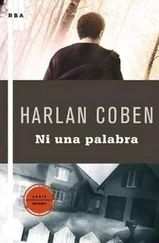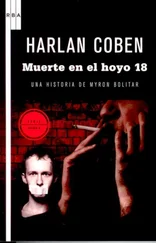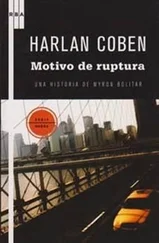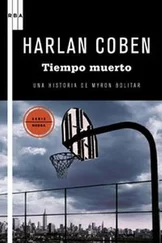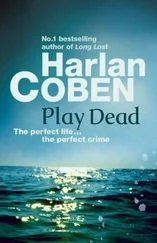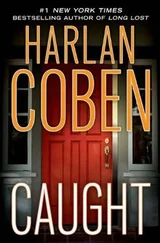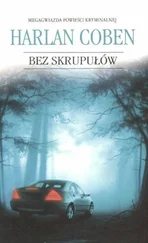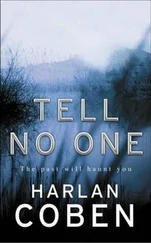I said nothing.
"Carly is twelve years old now. And no, I don't know who the father is. I don't think Sheila did either."
"I don't understand," I said.
She reached into her purse and took out a picture. She handed it to me. It was one of those newborn hospital shots. A baby wrapped in a blanket, new eyes blinking out, unseeing. I flipped it over. The handwriting said "Carly." The date of birth was written under it.
My head began to spin.
"The last time Sheila called me was on Carly's ninth birthday," she said. "And I spoke to her myself. Carly, that is."
"So where is she now?"
"I don't know," Edna Rogers said. "That's why I'm here, Will. I want to find my granddaughter."
When I stumbled back home, Katy Miller was sitting by my apartment door, her knapsack between her splayed legs.
She scrambled to her feet. "I called but…"
I nodded.
"My parents," Katy told me. "I just can't stay in that house another day. I thought maybe I could crash on your couch."
"It's not a good time," I said.
"Oh."
I put the key in the door.
"It's just that I've been trying to put it together, you know. Like we said. Who could have killed Julie. And I started wondering. How much do you know about Julie's life after you two broke up?"
We both stepped inside the apartment. "I don't know if now is a good time."
She finally saw my face. "Why? What happened?"
"Someone very close to me died."
"You mean your mother?"
I shook my head. "Someone else close to me. She was murdered."
Katy gasped and dropped the knapsack. "How close?"
"Very."
"A girlfriend?"
"Yes."
"Someone you loved?"
"Very much."
She looked at me.
"What? "I said.
"I don't know, Will. It's like someone murders the women you love."
The same thought I'd earlier pushed away. Vocalized, it sounded even more ridiculous. "Julie and I broke up more than a year before her murder."
"So you were over her?"
I did not want to travel that route again. I said, "What about Julie's life after we broke up?"
Katy fell onto the couch the way teenagers do, as if she had no bones. Her right leg was draped over the arm, her head back with the chin tilted up. She wore ripped jeans again and another top that was so tight it looked like the bra was on the outside. Her hair was tied back in a pony-tail. A few of the strands fell loose and onto her face.
"I started thinking," she said, "if Ken didn't kill her, someone else did, right?"
"Right."
"So I started looking into her life at the time. You know, calling old friends, trying to remember what was going on with her, that kind of thing."
"And what did you find?"
"That she was pretty messed up."
I tried to focus on what she was saying. "How so?"
She dropped both legs to the floor and sat up. "What do you remember?"
"She was a senior at Haverton."
"No."
"No?"
"Julie dropped out."
That surprised me. "You're sure?"
"Senior year," she said. Then she asked, "When did you last see her, Will?"
I thought about it. It had indeed been a while. I told her so.
"So when you broke up?"
I shook my head. "She ended it on the phone."
"For real?"
"Yes."
"Cold," Katy said. "And you just accepted that?"
"I tried to see her. But she wouldn't let me."
Katy looked at me as though I'd just spouted the lamest excuse in the history of mankind. Looking back on it, I guess maybe she was right. Why hadn't I gone to Haverton? Why hadn't I demanded to meet face-to-face?
"I think," Katy said, "Julie ended up doing something bad."
"What do you mean?"
"I don't know. Maybe that's going too far. I don't remember much, but I remember she seemed happy before she died. I hadn't seen her that happy in a long time. I think maybe she was getting better, I don't know."
The doorbell rang. My shoulders slumped at the sound. I was not much in the mood for more company. Katy, reading me, jumped up and said, "I'll get it."
It was a deliveryman with a fruit basket. Katy took the basket and brought it back into the room. She dropped it on the table. "There's a card," she said.
"Open it."
She plucked it out of the tiny envelope. "It's a condolence basket from some of the kids at Covenant House." She pulled something from an envelope. "A mass card too."
Katy kept staring at the card.
"What's the matter?"
Katy read it again. Then she looked up at me. "Sheila Rogers?"
"Yes."
"Your girlfriend's name was Sheila Rogers?"
"Yeah, why?"
Katy shook her head and put down the card.
"What is it?"
"Nothing," she said.
"Don't give me that. Did you know her?"
"No."
"Then what is it?"
"Nothing." Katy's voice was firmer this time. "Just drop it, okay?"
The phone rang. I waited for the machine. Through the speaker I heard Squares say, "Pick it up."
I did.
Without preamble, Squares said, "You believe the mother? About Sheila having a daughter?"
"Yes."
"So what are we going to do about it?"
I had been thinking about it since I first heard the news. "I have a theory," I said.
"I'm a-listening."
"Maybe Sheila's running away had something to do with her daughter."
"How?"
"Maybe she was trying to find Carly or bring her back. Maybe she learned that Carly was in trouble. I don't know. But something."
"Sounds semi-logical."
"And if we can trace Sheila's steps," I said, "maybe we can find Carly."
"And maybe we'll end up like Sheila."
"A risk," I agreed.
There was a hesitation. I looked over at Katy. She was staring off, plucking her lower lip.
"So you want to continue," Squares said.
"Yes, but I don't want to put you in danger."
"So this is the part where you tell me I can step away at any time?"
"Right, and then this is the part where you say you'll stick with me to the end."
"Cue the violins," Squares said. "Now that we're past all that, Roscoe via Raquel just called me. He may have come up with a serious lead on how Sheila ran. You game for a night ride?"
"Pick me up," I said.
Philip McGuane saw his old nemesis on the security camera. His receptionist buzzed him.
"Mr. McGuane?"
"Send him in," he said.
"Yes, Mr. McGuane. He's with "
"Her too."
McGuane stood. He had a corner office overlooking the Hudson River near the isle of Manhattan 's southwestern tip. In the warmer months, the new mega-cruise ships with their neon decor and atrium lobbies glided by, some climbing as high as his window. Today nary a stir. McGuane kept flicking the remote on the security camera, keeping up with his federal antagonist Joe Pistillo and the female underling he had in tow.
McGuane spent a lot on security. It was worth it. His system employed eighty-three cameras. Every person who entered his private elevator was digitally recorded from several angles, but what really made the system stand out was that the camera angles were designed to shoot in such a way that anyone entering could be made to look as though they were also leaving. Both the corridor and elevator were painted spearmint green. That might not seem like much it was, in effect, rather hideous but to those who understood special effects and digital manipulation, it was key. An image on the green background could be plucked out and placed on another background.
His enemies felt comfortable coming here. This was, after all, his office. No one, they surmised, would be brazen enough to kill someone on his own turf. That was where they were wrong. The brazen nature, the very fact that the authorities would think the same thing and the fact that he could offer up evidence that the victim had left the facility unharmed made it the ideal spot to strike.
Читать дальше
